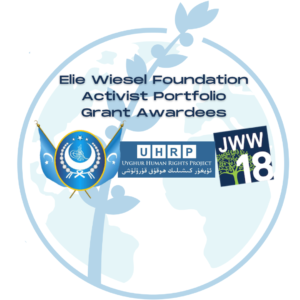When your translator is in tears, you know you’re in trouble.
This morning we met with two women, both of them survivors of rape. Both captured and violated by the Interahamwe — the FDLR militia, some of whom are former perpetrators of the Rwandan genocide. One woman was pregnant — she said that she had accepted the situation, but it didn’t look like acceptance in her eyes. The other woman had lost her child, and had sustained burns over her entire body — her community had rejected her.
I’ve never felt more overwhelmed or hopeless, and I’m just an observer. To be honest with you, I haven’t really known how to unpack these last few days — the stories we’ve heard are unbearable. They shouldn’t be true. They should be fiction, nightmares. What do you do with this knowledge? What can you possibly do to help, to repair?
After our meeting, our team stepped out into the sunshine in front of Heal Africa’s Jubilee Center. We waited for our truck to get gassed up for our next trip out. We struggled with our emotions.
 And then a man came up to talk with us, to let us know that he’d been injured in the war. Running from the Interahamwe as well, he had joined others in a lorry fleeing the village. The lorry’s brakes failed, it flipped, and they were thrown from the vehicle. Some men were crushed by the lorry itself as it rolled down the hill — this man was lucky enough to survive with two broken hands — amputated. I thought I would feel more sadness from his story, that there would be nothing but sadness in this place. I wondered again how we would bear this.
And then a man came up to talk with us, to let us know that he’d been injured in the war. Running from the Interahamwe as well, he had joined others in a lorry fleeing the village. The lorry’s brakes failed, it flipped, and they were thrown from the vehicle. Some men were crushed by the lorry itself as it rolled down the hill — this man was lucky enough to survive with two broken hands — amputated. I thought I would feel more sadness from his story, that there would be nothing but sadness in this place. I wondered again how we would bear this.
But this man is no victim — he is a survivor, in the truest sense of the word. He has two prosthetics, and he makes his living creating beautiful paintings. With no hands, he still finds the will and the way to paint, and to create beauty in his world.
Today we also met women from the Heal Africa Safe Motherhood project — women who have come together in community associations to ensure that each of them can afford quality prenatal care and reduce their risk during childbirth. They organize education about childbirth and family planning; the women learn accounting and run small businesses or cultivate fields as a collective. They manage their own money; they take care of each other: the collective helps to care for each woman’s needs during childbirth and maternity. Their husbands help — but the women are in charge. The program is slowly changing the culture, showing that women are strong and powerful contributors to the family and household. They’re gaining respect. They’re making a difference.
This is why tonight, despite this morning’s difficult conversations, I feel optimistic. The women — and yes, also the men — of Congo are strong. They are powerful. And they have the capacity to make incredible change in this place. While people here may need tools and skill-building, they don’t need us to speak for them or work for them — they need us to join with them to make real and effective change.
Today, after meeting Mama Annie and Mama Gilberte, who run the Safe Motherhood project — I feel hope. I think we can do this.


